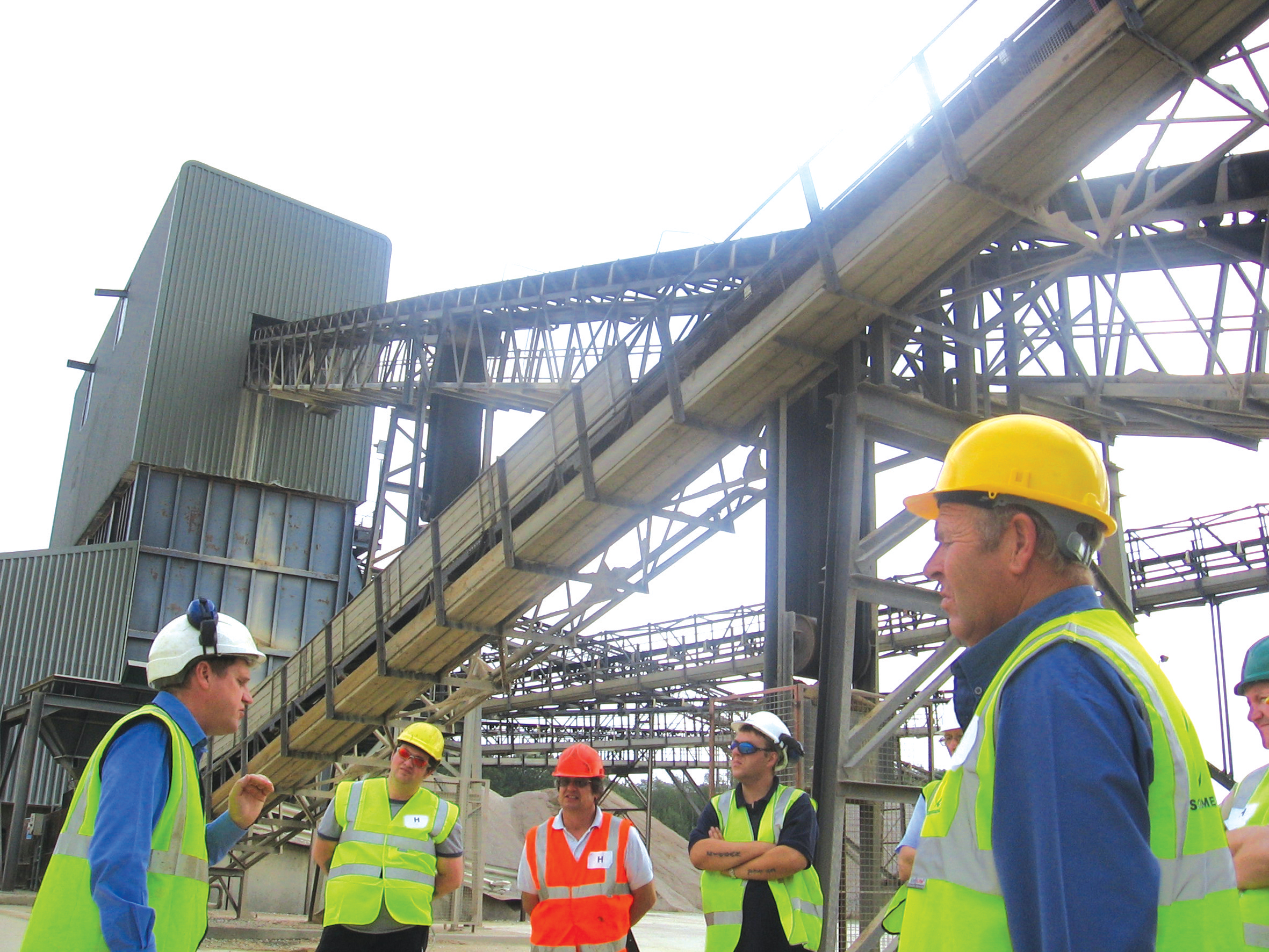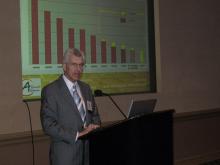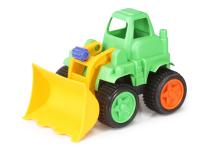
Quarrying can be a dangerous business but the Atlantic Alliance believes that sharing best practice can help reduce the risk. Claire Symes reports
The European aggregates industry employs more than 350,000 people but each year these workers are placed at a higher risk of death or injury than those working in other sectors in Europe. This level of risk is unacceptable and improving health and safety is usually central to the operation of almost every quarrying company.
Unfortunately the problem is not just an issue in Europe - the increased incidence of accidents and deaths in this essential industry are repeated in other countries around the world. Despite the higher than average death and injury toll for the industry as a whole, some countries do have better safety records as a result of long term initiatives.
Transfer of this best practice is the main aim of the
The group meets to exchange information and plan initiatives on a regular basis and also organises conferences to allow the best practice from the member countries to be spread to a wider audience.
The Atlantic Alliance held its third conference in April this year in Munich, Germany to coincide with the
Delegates from most of the major quarry operators and industry regulators attended the event to listen to reports of progress on improving health and safety in the Atlantic Alliance member countries, as well as presentations on initiatives and issues from various quarry operators and national aggregates associations.
Rapid progress
"The Atlantic Alliance has only been functioning for three years but in that short time it has already achieved things that the constitutional bodies have not," said Martin Isles, who is health and safety director for the Quarry Products Association and one of the UK representatives on the Atlantic Alliance.
Some of these changes that Isles points to are based on cultural differences between the Atlantic Alliance member countries. "The US members are working to change their approach to health and safety after seeing the benefits of the partnership approach taken by industry regulators and quarry operators to drive change in Europe," he said.
"The US's Mine Safety and Health Administration is funded by citations, which has created a very adversarial approach to improving health and safety in the US. Although it needs funding the MSHA is looking to find a more proactive rather than reactive way of working and through the Atlantic Alliance is working to build better relationships with the sector." The Atlantic Alliance was also involved in developing the joint dialogue with the
Equipment safety
However, Isles said that it is not just policies and strategies in the quarry that can improve the industry's health and safety record; manufacturers also have a leading role to play. "Manufacturers tend to sell on the lowest common denominator and look at meeting standards rather than providing real innovation. Health and safety is dynamic and best practice is rapidly advancing but manufacturers have slipped behind and are not doing enough to make working in a quarry safer," he said.
"Poor access and egress from machines is a big cause of accidents in quarries. Nonetheless, many of the new machines I saw at Bauma have not been designed to reduce this risk. Some are better once you climb above bumper level but gaining access and egress from this level is not easy. Construction equipment manufacturers have a good focus on productivity and efficiency but just not enough on health and safety." However, Isles is pleased to see that rear-view cameras are now becoming standard equipment on many machines. "UK quarry operators have been retro-fitting these for sometime now and it is good that manufacturers are beginning to recognise the need, but adoption of radar technology could further improve safety." Increasing forward vision from machines has been another target of the Atlantic Alliance since its inception in 2004. "There has always been an unofficial standard in the UK to be able to see a 1m tall object that is 1m away from the front of the machine," explained Isles.
"Standards elsewhere vary, as do tests to ensure equipment meets these regulations, but the Atlantic Alliance has successfully campaigned for the International Standards Organisation to develop a repeatable measuring method which will soon be adopted."
The next issue on the Atlantic Alliance's lobbying agenda for equipment is automatic sheeting systems for lorries. "Quarry operators work hard to ensure their staff are fully trained in health and safety matters but they have very little control over the training of delivery drivers who enter the site to collect material," said Isles. "Adoption of automatic sheeting not only reduces the need to work at height but also enables drivers to stay in their cab during the collection process."
Statistics targets
Although the quarrying industry is aware that its workers are at a higher risk of injury or death than those in other sectors, comparing the safety records is not a simple matter. "Almost every country records quarrying accidents differently, which makes accurate comparison of statistics between countries difficult, let alone benchmarking it against other sectors," said Isles.
Both the Atlantic Alliance and the UEPG are working to overcome the challenge of different measuring systems and improve the recording and collection of safety information in through their member organisations. "Until we have accurate measuring, it will be hard for us to try and set health and safety targets," said Isles.
"Having a hard target to reduce accidents by 50% between 1999 and 2005 set by the
Communication vital
Although the Atlantic Alliance is not actively recruiting other member countries, Isles said that it is hoping that Canada will join the forum. "Having input from the Canadian market will better represent North America in the Alliance," he said.
Isles hopes that Canada will become part of the organisation before the next Atlantic Alliance conference, which is planned for 2009. Despite the two year gap between conferences, Isles said that communication through the organisation's website and other media will play a key role in maintaining the momentum that has been developed over the last three years.
"Websites like the Atlantic Alliance's www.quarry-safety.net and the QPA's own www.safequarry.com offer real opportunities to transfer best practice through real examples. They also allow us to provide materials for tool box talks and topics for discussion. Keeping health and safety in people's minds will prevent the complacency that could undo the progress already made"








